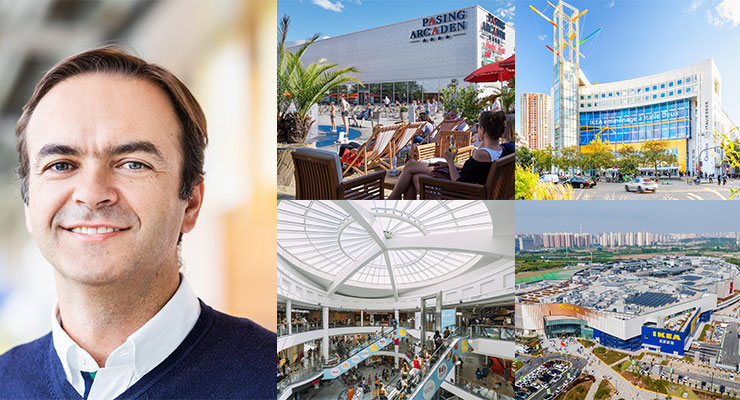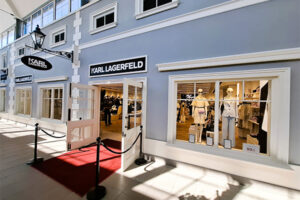ACROSS: Ingka Centres is present worldwide, from San Francisco to Shanghai, and has a growing European portfolio. Although the markets are different, do you see an overall consumer trend?
Vasco Santos: We see different consumer habits across regions. Factors like market maturities, local preferences, and macroeconomic conditions drive this. However, there is one big common trend: People want to meet and spend time together in physical spaces. The Ingka Centres Life in Communities report shows that 57% of the respondents from Europe, China, and the US would like to meet more in person. Therefore, we aim to create places in which people truly love to shop, eat, live, work, and play every day. Our focus is on making these spaces affordable, sustainable, inclusive, and community-friendly while fostering connection, experience, playfulness, and relaxation – all in response to the evolving needs and dreams of local communities
ACROSS: What are the most significant differences regarding consumer habits across the regions in which you are active?
Santos: Europe is characterized by three main points. First, from a consumer perspective, affordability is paramount. Second, different products and services are accessible, and there is an increasing demand for sustainable products and authentic experiences. On the other hand, in the US, the emphasis is on convenience and affordability. US consumers are looking for a balance between new forms of entertainment and new ways to enjoy dining out.
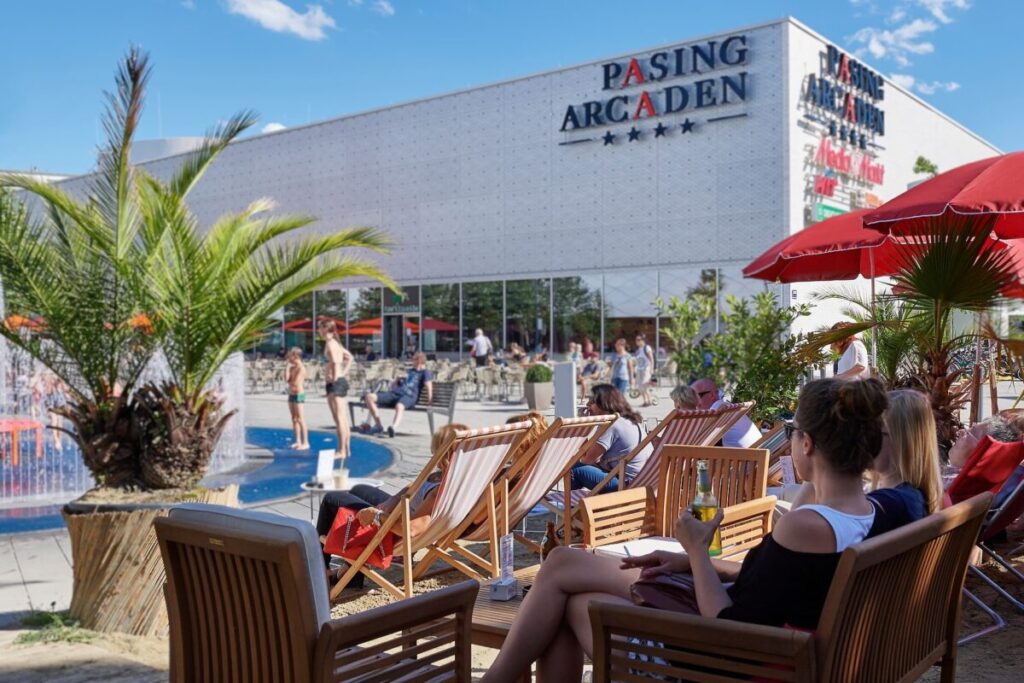
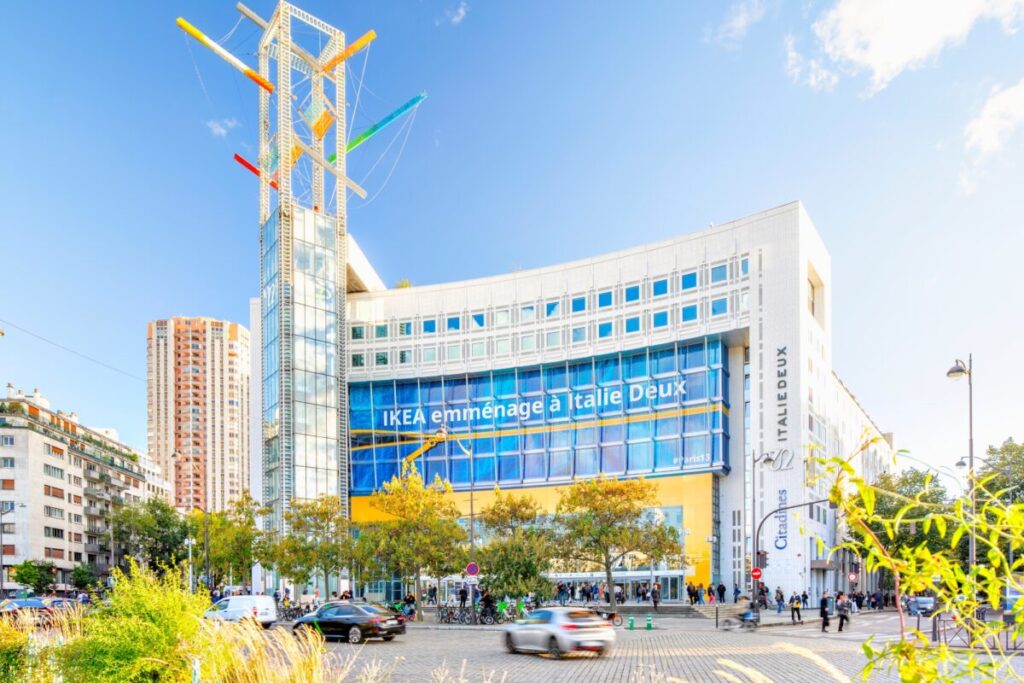
ACROSS: In comparison, China is a completely different market.
Santos: Absolutely. China is the most advanced market when it comes to digitalization. Consumers have been shifting their spending and purchasing power to more engaging elements like entertainment and leisure and have a high affinity for social connections and outdoor activities. They are discovering new ways of spending time and money. The remarkable thing about China is the pace. Technology acceptance in China is very high and far ahead compared to other markets. Our newest market, India, is at an entirely different stage. Consumers have an appetite for global brands. Purchasing power is growing with the demand for access to solutions they did not have before. In addition, consumers are strongly influenced by their cultural heritage and the focus on family. Therefore, the issues of entertainment and leisure are coming into focus.
ACROSS: In which region do you see your biggest opportunities in the future?
Santos: We are and will continue to be a global company. Therefore, we are growth-minded. Our focus is not fixed on a single market. Last year, we developed mixed-use projects in China. That alone shows our commitment to the Chinese market. We are delighted with our results there. Nevertheless, the Chinese market is facing challenges on a macroeconomic level. India has enormous potential for new quality projects. In the capital region of Delhi, we have two projects that combine shopping, work, leisure, and gastronomy. North America and the US are very competitive markets with significant challenges, but we are continuing to examine opportunities and want to grow there as well. However, the further development of existing assets is just as important as new projects. The Saluhall concept in San Francisco is one such example. In Europe, we have recently made essential acquisitions with the Pasing Arcaden in Germany, Italie Deux in France, and Churchill Square in the UK. We have tremendous confidence in Europe, a central pillar of our growth strategy.
ACROSS: Given this global approach, how Scandinavian are you with respect to your projects?
Santos: Our Scandinavian roots inspire strategy and design that make life simple, beautiful, and sustainable – the most important aspects that shape every project. It is about clean lines, the efficient use of space, community engagement, creating a welcoming, inclusive environment, and acting sustainably at every level. We define this attitude as our Scandinavian ethos. It is important to us that the customer also experiences this. They should feel that, no matter where a project is located, they are entering a place that values them, the community, and the planet.
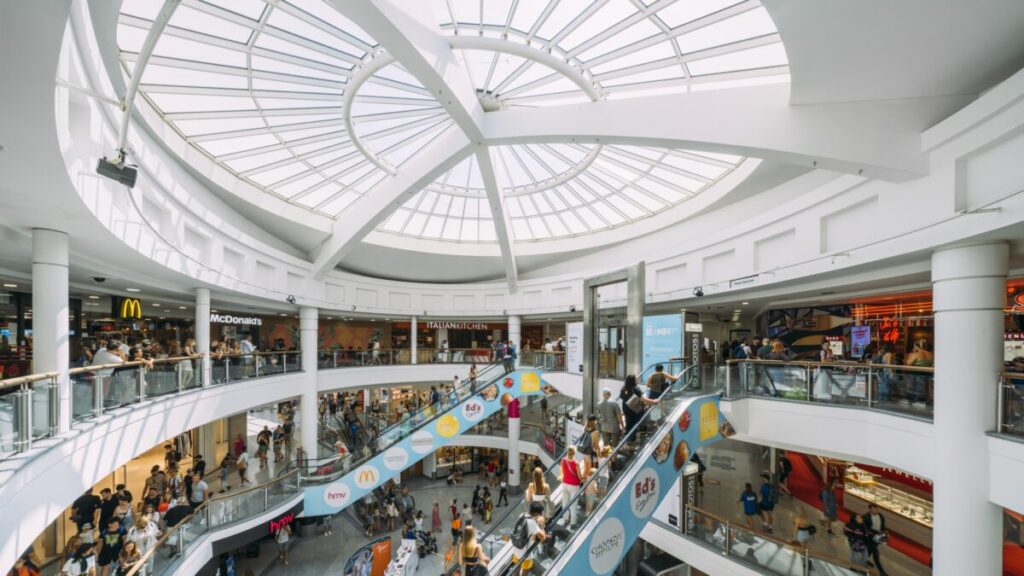
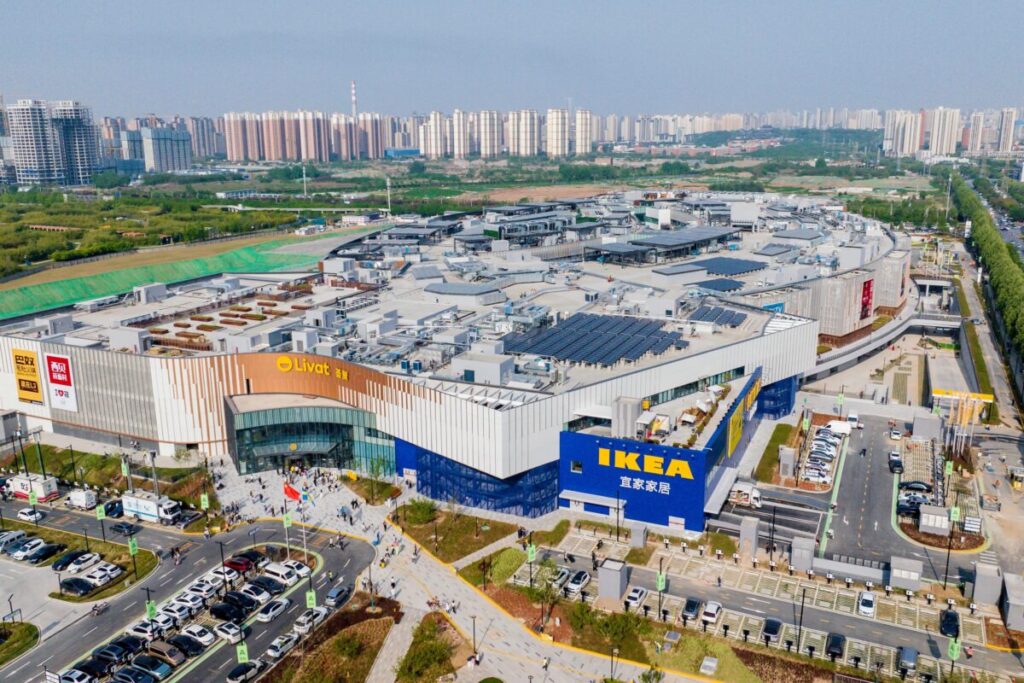
ACROSS: Do those values also determine partnerships with brands?
Santos: We have very loyal brand partners who are eager to grow with us worldwide. Honestly, for retailers, entering markets like India can be complex, but our partners know what we stand for. They believe in our values and experience, and they trust us. They know how much we care about asset management, how we engage with consumers, and how that is reflected in our performance. Uniqlo, H&M, and the Inditex group are very close partners; they have grown with us across all regions.
ACROSS: You follow a clearly defined community and mixed-use approach for all your assets. How do you define community, and why are mixed-use elements so essential in this context?
Santos: We define community very broadly, so it’s not just about the people who live in a specific area. We consciously include all stakeholders and everyone who cares about improving the community, including authorities, organizations, and social institutions, in our definition. Our approach is based on the belief that we can offer a better life to the people around us. We want to provide people with spaces that bring them joy. We mean it when we say that a given space is not ours but the community’s. We aim to create lively, mixed-use spaces where people can shape the community through work, shopping, and leisure. Local entrepreneurs play a key role in fostering connections and showcasing their vision. This approach encourages social interaction and supports economic growth.
ACROSS: What is INGKA Centres’ self-image? Are you a platform provider for consumers and retailers, or do you want to be a visible actor?
Santos: We are both a platform and an actor. Initially, we were undoubtedly more of a platform. However, in recent years, we have become more of an actor. The best example is our Saluhall Foodhall in San Francisco, where we serve plant-based food, raise awareness about the benefits, and involve the community. We put our effort into creating a space that is more than just a “dining room” but a place that creates community. So, in that sense, we are an actor. Another example can be found in our Hej!Workshop concept, with which we offer places to work and, above all, share our knowledge about flexible workspaces.
ACROSS: In what sense are you a platform?
Santos: We connect customers to our partners.Take our Circuit initiative, for example. The concept aims to make circular economy solutions accessible to many people. It offers a curated community hub for visitors to learn how to repair, reuse, rent, and recycle all kinds of products. Consumers are extending the lives of their products. Retailers can get involved and prove that they are focused on the value of the products. We bridge the gap between consumers and retailers, focusing on building lasting connections. Another example is our One Planet concept in China, where we only welcome brands with sustainable offerings. Some brands are tiny companies with outstanding products and exciting business ideas. We give the brands a stage and connect them to people seeking healthier and more sustainable lifestyles. That’s why we are a platform. At the same time, however, we are actively involved in the relationship between customers and brands.
ACROSS: You have already emphasized that sustainability is one of the core values, and you have just given the example of One Planet in China. How difficult is it to enforce a commitment to sustainability in new markets? How important is the sustainability trend, especially in China?
Santos: That trend is growing everywhere.We have created a database of companies that focus on sustainable products and are active in the circular economy. That database is growing and growing. Of course, every region is at a different stage, but the issue is important everywhere. In China, in particular, the speed at which they are tackling sustainability issues is enormous when it comes to other topics, such as digitalization. I believe that China will develop consistently and at a fast pace in terms of circularity and sustainability, because once China has set a path, it will follow it consistently.
ACROSS:Let’s examine the European market in greater detail. Please briefly describe your European portfolio and share your plans for your newest acquisitions.
Santos: We are convinced that our three most recent acquisitions, Pasing Arcaden in Munich, Germany, Churchill Square in Brighton, UK, and Italie Deux in Paris, France, are of central importance to their communities, but they have not yet reached their full potential. By integrating them into our network and implementing our values, we can add value to the locations. They are attractive shopping centers that we are trying to develop into meeting places. While retail is and will always be the core of what we do, those assets also have some components, besides shopping, that are relevant to their communities. In Paris, for example, we have 17,000 sq m of office on top of the retail building. Pasing Arcaden also has some office and residential components. The profile of an asset we are enthusiastic about includes: locations that are already involved in the community and that promote public transportation.
ACROSS: Do you have plans for further acquisition in Europe?
Santos: As mentioned earlier, we believe Europe is a critical region for our portfolio. People appreciate the value of physical spaces in Europe, not just at shopping centers – especially after the pandemic; it is visible across the entire industry. We feel reassured by the fact that people show up and say these places are essential for daily life. We do not research specific countries in Europe. Europe offers the same opportunities in all countries, even though the fundamentals of microeconomics might differ at a particular moment. We are there for the long run and can overcome difficulties with our partners if we believe in a project.
ACROSS: Given your international experience, what can the European retail real estate markets learn, especially from China?
Santos: There is a vital transfer of knowledge within our organization. The markets’ organizations are in close contact, and our experiences must be shared. China is a market from which we can learn a lot, especially regarding agility and openness to technology. The ease with which the market accepts technological change, embraces innovation, and participates in it must serve as a model for Europe. What is of similar importance is learning how China integrates experiential elements like leisure, entertainment, edutainment, and gastronomy into our meeting places. The percentage of those elements in China is massive. In Europe, we are still on our way to increasing the footprint of these elements. China, on the other hand, is doing so well when it comes to creating multi-dimensional spaces that go beyond shopping.
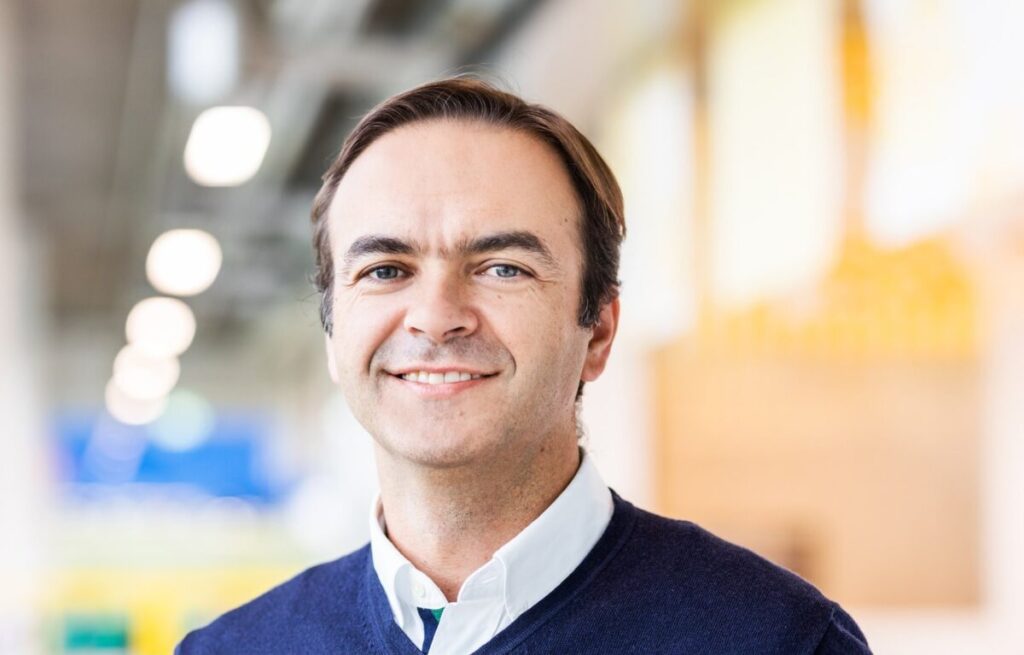
Vasco Santos
Vasco Santos is the Global Sales & Leasing Director at Ingka Centres
